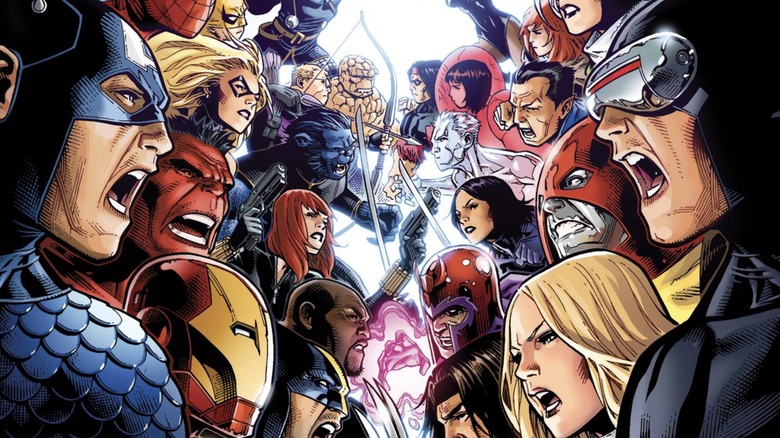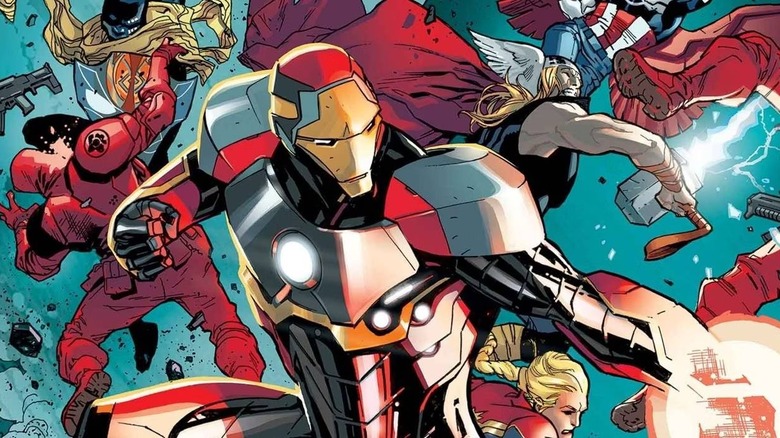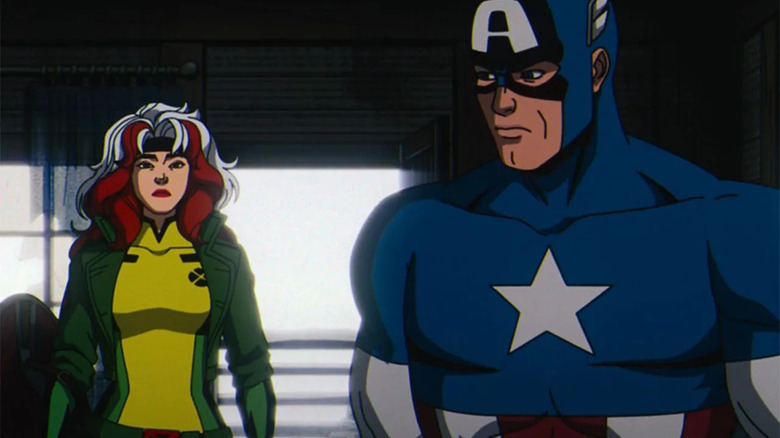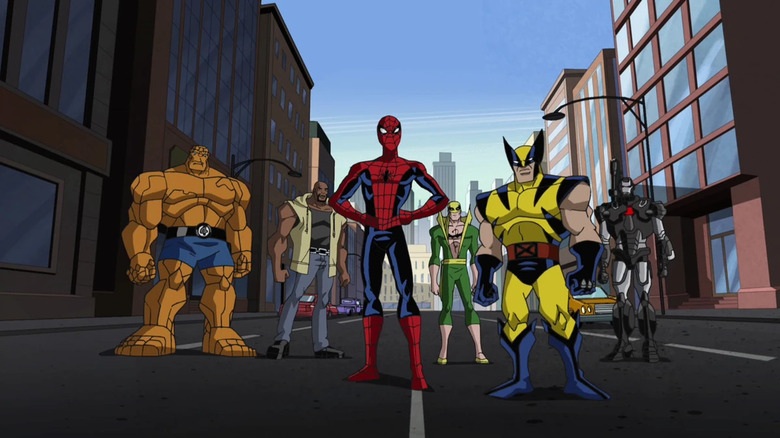Why The Avengers Don't Help The X-Men More - Do They Hate Mutants?
Many fictional universes force audiences to suspend their disbelief. It's okay to believe science wouldn't work a certain way in a movie or TV show because that might hamper any dramatic weight. But sometimes, when digging deeper into the logic of certain universes, problems present themselves. This is particularly true of the X-Men across Marvel media. For example, there's the X-Men's biggest problem — why do people hate them but adore other superheroes? It's odd people in the Marvel universe would love Captain America but despise Wolverine, and that segues into another important question: Where are the Avengers when the X-Men face discrimination?
Mutants in Marvel Comics frequently contend with giant Sentinels and legislation from Congress to limit the reach of those born with extraordinary abilities. As such, it's a bit odd the Avengers don't step in more often to lend a helping hand to the people they sometimes fight side-by-side with. Not for nothing, but the comics have addressed this in the past. For example, in "Civil War" #3, by writer Mark Millar and artist Steve McNiven, Iron Man wants the mutants to fight for his side in registering superpowered individuals. Emma Frost counters by projecting a visage of a destroyed Genosha while saying, "Where were the Avengers when Genosha died, Iron Man? Where were you when our babies were burning?"
The destruction of Genosha is far from the only event the Avengers could've helped mutantkind with. It must make things awkward when the occasional mutant, like Scarlet Witch, joins the ranks of the Avengers. So are the Avengers apathetic toward the plight of mutants, or is there a far more innocuous explanation at play? Ultimately, the Avengers probably don't outright hate mutants, but they're pretty lousy allies.
The Avengers do help the X-Men ... sometimes
An interconnected universe, either in comics or on the big screen, will inevitably cause problems with continuity. The Marvel Cinematic Universe already has this problem to a certain degree because there are still so many solo movies that could've been resolved faster had someone called for help. However, the X-Men being left to their own devices is far more problematic because they're often targeted by the United States government instead of some random villain. Shouldn't the Avengers use their influence to help them?
In the comics, sometimes the Avengers do help out. This could be seen in the storyline for "Avengers" #12, written by Jed McKay with art from Francesco Mortarino. The X-Men have been dealing with Orchis, an anti-mutant operation that develops Sentinel production plants. The Avengers, led by Iron Man, engage in a full-on assault to take down the plants before they cause more problems.
This plotline, and others like it, see the Avengers helping mutants when they can. Of course, it's easy to see this as a "few and far between" scenario where the Avengers only lend aid when convenient. Granted, the Avengers get busy with their own problems, sometimes going to other planets to deal with intergalactic threats. It's understandable to be spread too thin sometimes, but on the other side of the coin, they could do more.
Captain America is a bad ally to the X-Men
"X-Men '97" has had many surprising cameos, but arguably the hardest hitting was Captain America's inclusion in Episode 7 — "Bright Eyes" — when Rogue takes him to task for not helping mutants. He doesn't exactly stand in ardent solidarity with mutant causes, and that portrayal was very much intentional. Director Jake Castrorena spoke on ComicBook.com's "Phase Zero" podcast to talk about this version of Cap's stance on the X-Men: "A lot of people tend to forget that Cap of the '90s wasn't the same as [the MCU's Steve Rogers] ... Steve Rogers in the '90s had a little bit of a bias against the mutants," he said.
This characterization has also rubbed some fans the wrong way. In a Reddit thread analyzing why the Avengers don't intervene in mutant matters more often, u/acidicmongoose stated, "[Captain America's] hugely respected, especially in the military. He could fight policies like the Sentinel programme and publicly champion mutant rights. While it's probably not possible for him to completely stop the Sentinels and anti-mutant sentiment, he could sway a great deal of public support." Cap's busy with his own things, so it makes sense he can't fight every battle the X-Men deal with. The issue is that he could do more but doesn't.
Captain America functions as an extension of the U.S. government, but other heroes, like Iron Man, Thor, and the Fantastic Four, could do their part too. However, the fact many heroes don't aid the X-Men further plays into the sociopolitical themes X-Men stories typically comprise. Mutants are an ostracized minority fighting for the right to exist, and while some people may offer surface-level support, the X-Men are on their own much of the time.
The X-Men not having the Avengers makes for better stories
If Superman came to Gotham, Batman would need a new job by the end of the afternoon. His stories and adversaries don't really work with an all-powerful alien superhero, and a similar sentiment could apply to the Avengers and X-Men. If the Avengers did majorly intervene on behalf of mutants, there wouldn't be any more interesting stories to tell. The two teams can't intertwine a whole lot because drama is necessary to the narrative, and it would appear many Marvel Comics readers understand this is the case. In that same Reddit thread, u/mechamechaman wrote, "The X-Men are a team of social outcasts that are a metaphor for oppressed minorities and the Avengers, in X-Men comics at least, are positioned as the status quo superhero team. The X-Men cannot be a minority metaphor if they are helped by the status quo."
Mutants stand in for real-world oppressed groups, whether that's racial minorities or the LGBTQ+ community. Those themes create more engaging stories beyond beating up bad guys, and getting saved by the Avengers at every turn would get boring after a while. There are even practical reasons, as there are different teams working on "X-Men" and "Avengers" titles who only really intersect when doing crossovers. Neither team probably knows what the other's doing, so they stay out of each other's stories.
Even though the Avengers staying away from mutants makes sense from a narrative perspective, it does cause problems since all these characters exist in the same universe. It's bound to cause even more headaches when the X-Men enter the Marvel Cinematic Universe properly, which might come sooner than people expect. The best response to all of this is: Don't think about it too hard.



